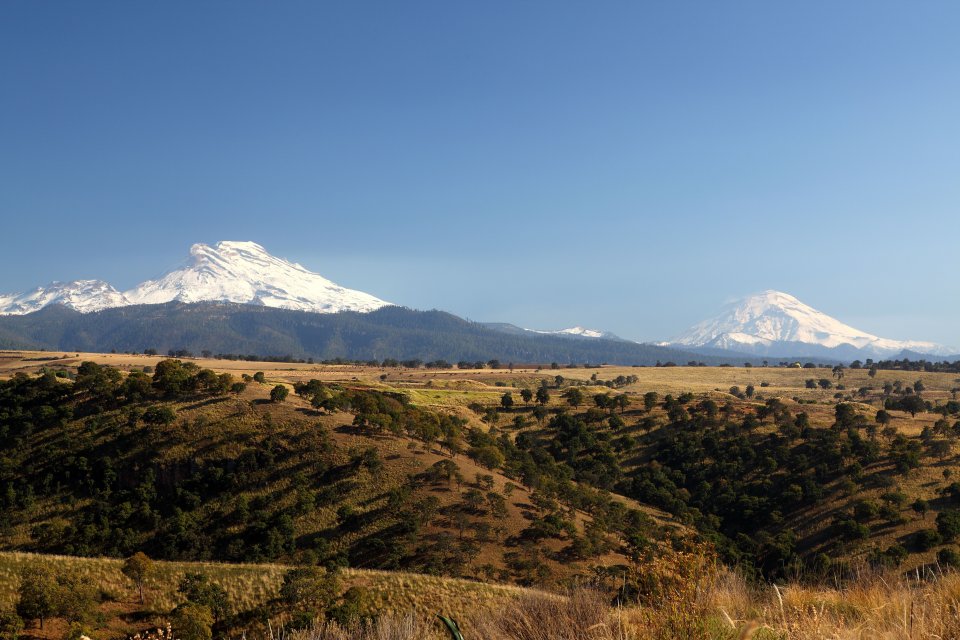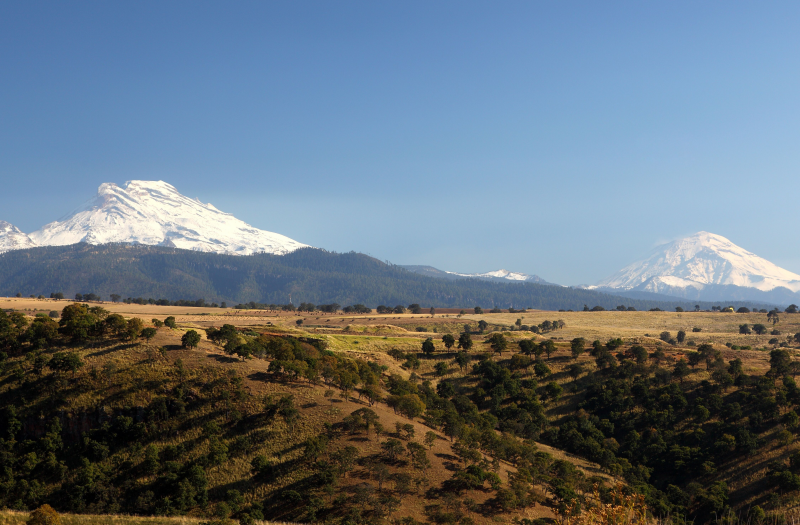Izta - Popo - Replenishing Groundwater through Reforestation in Mexico

The project aimed to restore the functionality of the ecosystems on the volcanic slopes of Popocatépetl and Iztaccíhuatl. Volkswagen de México partnered with the Comisión Nacional de Áreas Naturales Protegidas to develop this project. Because of the effects of deforestation, existing conditions at Iztaccíhuatl -Popocatépetl National Park meant that water retention was not sustainable.
The Volkswagen Group (the Group) is one of the world’s leading automobile manufacturers. The Group is comprised of twelve brands (Volkswagen Passenger Cars, Audi, SEAT, ŠKODA, Bentley, Bugatti, Lamborghini, Porsche, Ducati, Volkswagen Commercial Vehicles, Scania and MAN), operating 118 production plants in 20 countries across Europe and 11 countries in the Americas, Asia, and Africa.
The Group aims to create lasting value for the Company, its employees, and its shareholders, but also for the countries and regions in which they operate. This all-embracing view of sustainability is shared by all twelve brands, their companies, and all employees across the Group.
Together they work to find solutions to the substantial challenges of the future.
Indeed, markets are shifting, resources are becoming scarcer, emissions regulations are tightening all over the world, and booming cities call for new and intelligent traffic and mobility concepts. The Group considers it part of their responsibility to find the right answers to these trends.
Volkswagen de México operates a production plant in the Puebla-Tlaxcala Valley, a region of Mexico where water supply is particularly critical. Although the wastewater produced by Volkswagen de México is treated and recycled, it has been clear for years that there would not be enough fresh water for the growing city of Puebla and the industrial area nearby. In this context, securing a reliable water supply was critical to ensure the stability of Volkswagen de México production efforts.
Comisión Nacional de Áreas Naturales Protegidas partnered in the Iztaccíhuatl-Popocatépetl (Izta-Popo) project to help secure a water supply for the local population and future plant operations.
The team proposed a system of natural infrastructure alternatives — trees, pits and earthen banks—to enhance rainwater capture.
A 10-person environmental planning team developed the project. Leadership support within Volkswagen de México for this project, as well as environmental...
The primary objective of the project was to secure a reliable water supply to ensure the stability of production for Volkswagen de México, and the availability of water for local communities.
Analysis found that groundwater replenishment in the Puebla Tlaxcala valley was highly contingent upon the functionality of the ecosystems on the volcanic slopes of Popocatépetl and Iztaccíhuatl. Years of deforestation from illegal logging, livestock farming, and fires had led to increased water runoff, and loss of capture and storage in the groundwater table. It was important to re-plant the deforested slopes between the two volcanoes in the source region of the Rio Atoyac, and to construct pits and earthen banks to facilitate infiltration.
The success of the Itza Popo project has prompted Volkswagen de México to initiate a similar new project involving 100 hectares of trees to be planted in Filao, Mexico
- When involving local people in the planting and maintenance work, it is important to rely on their experience, and allow them to take ownership of their part in the project.
- The participation and stakeholder buy-in from other organizations, including the agency responsible for the Puebla State drinking water, was key to the project’s success.
- It was important to include team members with a working knowledge of sustainable practices in water use and development for natural resources.
- This project was an opportunity to create awareness within local communities, and to educate students at different levels (elementary and high school) on the importance of environmental stewardship through the example of the project
Michael Kühn,
Environmental Control Product
michael2.kuehn@volkswagen.de
Raul Rodriguez Sanchez,
Director of Environment, Industrial Safety and Permits
raul.rodriguez@audi....
